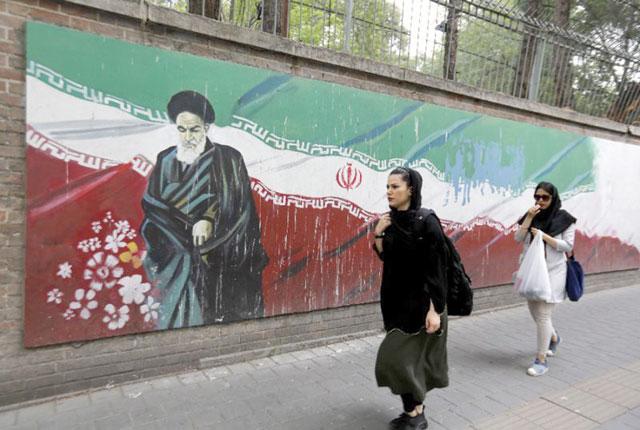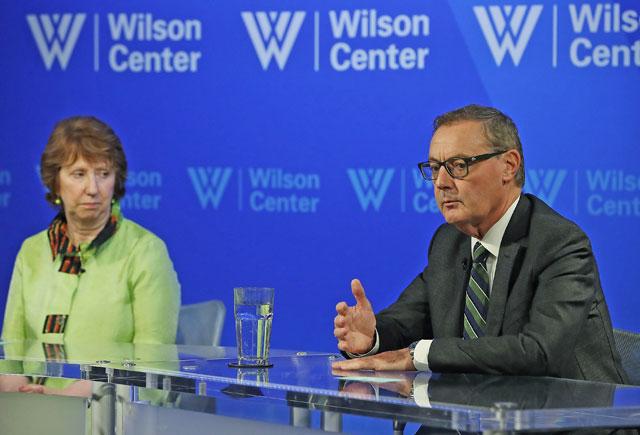You are here
Iran says it offers ways to ease impasse over underground nuclear plant
By Reuters - Jul 10,2014 - Last updated at Jul 10,2014
DUBAI — Iran said on Wednesday it had offered ways to address foreign concerns over its underground Fordow uranium enrichment plant, hinting at flexibility on a serious obstacle to a nuclear deal with big powers as a self-imposed July 20 deadline nears.
It was not immediately clear whether the Iranian suggestions were far reaching enough to bridge the gap over Fordow, one of a handful blocking progress towards a long-term agreement that would improve stability in a Middle East riven by conflicts.
France, one of the powers, had said on Tuesday that none of the main outstanding issues in the talks, including Fordow, had been settled and that the United States wanted foreign ministers to join in to help overcome deadlocks.
The United States, Russia, France, Germany, China and Britain want to cap Iran’s capacity to enrich uranium to ensure Iran cannot accumulate potential fuel for atomic bombs. In return, Iran would be rid of sanctions crippling its economy.
Iran denies any intention to derive bomb material from enriched uranium or that it is seeking the technical know-how and means to assemble a nuclear weapon. It says it wants to refine uranium only for civilian energy purposes.
Western powers have in the past called on Iran to shut down Fordow, regarding the plant — built in a fortified bunker deep underground and protected by anti-aircraft batteries — as ideally suited to enriching uranium to weapons-grade.
Iran also has a larger, older enrichment site at Natanz that is better known to UN nuclear inspectors, although the powers seek curbs on the numbers of centrifuges — now an estimated 9,000 — enriching uranium at Natanz as well.
“One proposal is changing the Fordow site into a research and development and back-up site for Natanz,” said Ali Akbar Salehi, head of Iran’s Atomic Energy Organisation, according to comments carried by IRNA.
Research site as compromise?
Some Western experts have suggested that turning Fordow into some kind of research facility could be a possible compromise, but that may not be enough for hawks in the United States and Israel, Iran’s two arch-adversaries.
Iran used Fordow to enrich uranium to 20 per cent fissile purity — ostensibly to fuel a Tehran medical research reactor but also just a short technical step away from bomb-grade material — but halted that activity in January under an interim nuclear deal struck with the powers in Geneva last November.
Tehran is now producing low-enriched — or 5 per cent — material usable for nuclear power plant fuel at Fordow, running some 700 of 2,700 centrifuges it has installed there.
In the past, Iran had ruled out closing any of its nuclear sites, which include a planned heavy-water reactor at Arak with the potential to yield plutonium — another primary fissile ingredient in atomic bombs — along with highly enriched uranium.
Another idea, Salehi was quoted by IRNA as saying, was to convert Fordow into a physics and space radiation laboratory offering services to other countries.
“Agreeing to its conversion into a research and development facility is a concession,” said Ali Vaez, Iran expert at the International Crisis Group. He noted that both sides have shown flexibility on issues such as Arak and Fordow in the past.
But he cautioned: “The problem right now is that they simply can’t bridge the gap on the [main] contentious issues like [levels of] enrichment and sanctions relief.”
Western experts say Iran could now produce enough highly enriched uranium for a bomb in two to three months, a timeline they say should be extended to at least a year. Iran says that even if it wanted such weapons, which it denies, it would take much longer.
Related Articles
Iran has conducted "mechanical" tests on a new, advanced machine to refine uranium, a senior official was quoted as saying on Wednesday, a disclosure that may annoy Western states pushing Tehran to scale back its nuclear programme.
BEIRUT — Iran will begin uranium enrichment at its Fordow plant and will install new nuclear equipment at its Natanz facility if it withdraw
PARIS/WASHINGTON — The remaining parties to the Iran nuclear deal have warned the United States that its decision to withdraw from the pact













